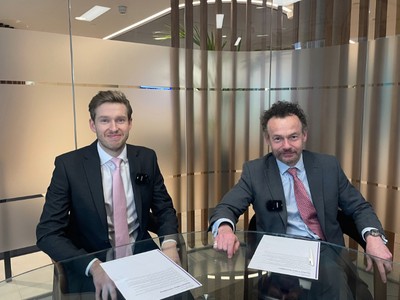The first quarter of 2022 can be characterised as a period of sustained abnormal negative returns for most financial assets and a period of short term relative underperformance for many equity holders, resulting in a challenging environment for long-term investors.
The quarter began with concerns that Central Banks had fallen behind the curve in raising interest rates to keep inflation at bay. The baton was passed to fears around the Russian invasion of Ukraine and the possibility that peacetime across much of the world had been taken for granted by more than one generation. Then, second order concerns from Russian actions arose in the form of the dramatic price rises in a number of commodities that are produced, refined or transported through Eastern Europe. Finally, this returned investors to worries that Central Banks would need to walk the tight rope of raising interest rates in order to control the resultant cost-push inflation without causing an increasingly fragile global economy to falter.
During economic stress, the time horizon of the average investor reduces dramatically. A greed-driven focus on the fastest amount of growth for the longest amount of time can turn to a fear-driven focus on realising capital either through a move to assets generating the most profit and income today or even an outright sale; it is this dramatic shift in sentiment that has negatively affected the recent performance of the funds I manage. We believe our focus on buying high quality businesses at what we view to be a fair price and aspiring to own these assets for a long time helps to avoid the emotional states of fear and greed, which we believe to be detrimental to both health and wealth in the long run.
I have written in the past about preferring to use discounted cashflows to determine what we perceive to be a ‘fair price’ for an asset but I have not previously laid out the definition of what we perceive to be a high quality business. When seeking a new investment for the CSI funds we are looking for businesses that are able to grow their sales at greater than GDP over the cycle. They should be able to maintain stable gross margins (suggesting pricing power for their good or service) and generate high operating margins (suggesting their good or service is not one that can be easily competed against). They should be able to turn these operating profits into cash (it is no use if all profits generated must be spent on machinery or inventory to keep the growth wheel spinning). They should enjoy high returns on capital (showing that more capital is not necessarily needed to drive the same growth) and they should do all of this with reasonable leverage (excessive debt can be toxic in the presence of an unexpected surprise). We think these businesses will survive war, inflation and interest rates and whilst their share prices may go through disappointing periods over the short term, when bought at a fair price, these businesses should deliver a pleasing result to shareholders over the long term.
One of the detractors to the funds’ performance over the quarter was Burberry. Over the last twenty years, Burberry has grown revenues at a 9% compound annual growth rate. Its gross margin for the majority of that period has stayed reliably in the mid 60’s, its operating margin has only occasionally drifted below 17% and it has spent only a small amount of its revenue on capital expenditure. Its return on capital has consistently and impressively remained above 20% and it currently holds £1.3bn in cash, nearly offsetting its £1.4bn of debt. Established in 1856, Burberry has operated through two world wars and high inflation and interest rates in the 1970’s. Over the quarter, Burberry shares have fallen by a disappointing 7.9%, however over the last twenty years, up to and including this quarter, the return to a long-standing Burberry shareholder would have been 642% - a compound annual growth rate of 10.5%.
We are not complacent about the challenges that face the global economy and the businesses that we own, but we are also not despondent or overly concerned about their future prospects. We are feeling neither fearful nor greedy.
James Godrich, Fund Manager
James is the manager of the Coleman Street Investment Service
The value of securities and their income can fall as well as rise. Past performance should not be seen as an indication of future results. All views expressed are those of the author and should not be considered a recommendation or solicitation to buy or sell any products or securities.




